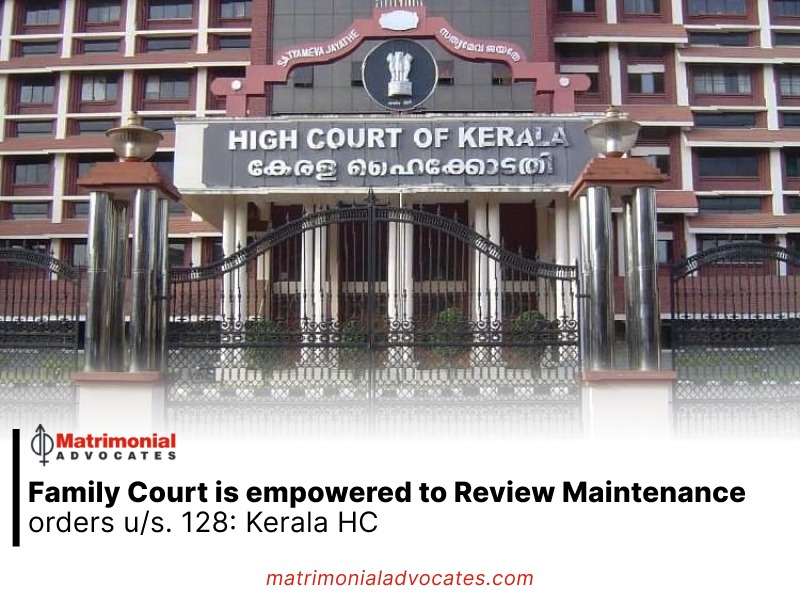
The Kerala High Court observed that the Family Courts are empowered to review maintenance orders as they are liable for enforcing the provisions under Chapter IX of the Criminal Procedure Code. Chapter IX’s objective is to provide neglected or abandoned wives, children, and parents with an ideal maintenance amount so that they can survive with easy accessibility to basic needs. Therefore, the restriction under Section 362 of the CrPC does not apply to Chapter IX, including Section 128 of the CrPC, the Court highlighted.
Justice V.G. noted, “The irrefragable position emerging from the above discussion is that insofar as the objective of Chapter IX of the Code is to ensure payment of the reasonable amount for the maintenance of neglected/deserted wives, children and parents and enforcement of the provisions is through Family Courts, the embargo under Section 362 will not apply to any of the provisions in the Chapter, including Section 128. Therefore, the contention that even if Sections 125 to 127 do not envisage the court becoming functus officio on passing the order, that will not apply to Section 128, cannot be countenanced.”
Advocate T. Madhu appeared for the Petitioner and Advocate V. Beena represented the Respondent.
The Respondent approached Family Court seeking maintenance from the Petitioner. After considering evidence and materials, the Court ordered the Petitioner to pay a monthly amount as maintenance allowance to the respondent and her two children. However, the petitioner failed to comply with the order of the Family Court and didn’t pay the said amount. The Respondent then submitted an Execution Petition seeking enforcement of the maintenance order which was dismissed mentioning that the husband had already paid maintenance as the education fees and expenses for the children.
The Respondent filed a review petition, which was allowed by the Court. On the other hand, the petitioner approached the High Court challenging the order of the Family Court.
The Court addressed the question, ‘whether the Family Court had the authority to review an order, even if it was patently erroneous.’ The Court while referring on Anjana T. v J.A. Jayesh Jayaram and Another [2022 (3) KHC 221] and Nisha Haneefa v. Abdul Latheef and Others [2022 (2) KHC 759], noted that Section 10 (3) of the Family Courts Act allows the Family Court with the power to form its procedure to reach a resolution pertaining to the matter of the case or to determine the truth behind the disputed facts.
The Court further observed, “The only question, therefore, is whether the Family Court could have reviewed the order, even if it was found to be patently erroneous…It is also pertinent to note that the Family Courts are set up to deal with disputes concerning the family by adopting an approach radically different from ordinary civil proceedings…Section 10(3) of the Family Courts Act, 1984 empowers the Family Court to lay down its own procedure with a view to arriving at a settlement in respect of the subject matter of the suit or proceedings or at the truth of the facts alleged by one party and denied by other.“
As a result, eventually, the Court dismissed the Petition.
Source: https://www.verdictum.in/court-updates/high-courts/family-court-is-empowered-to-review-maintenance-orders-us-128-crpc-embargo-us-362-crpc-would-not-apply-kerala-hc-1489382





